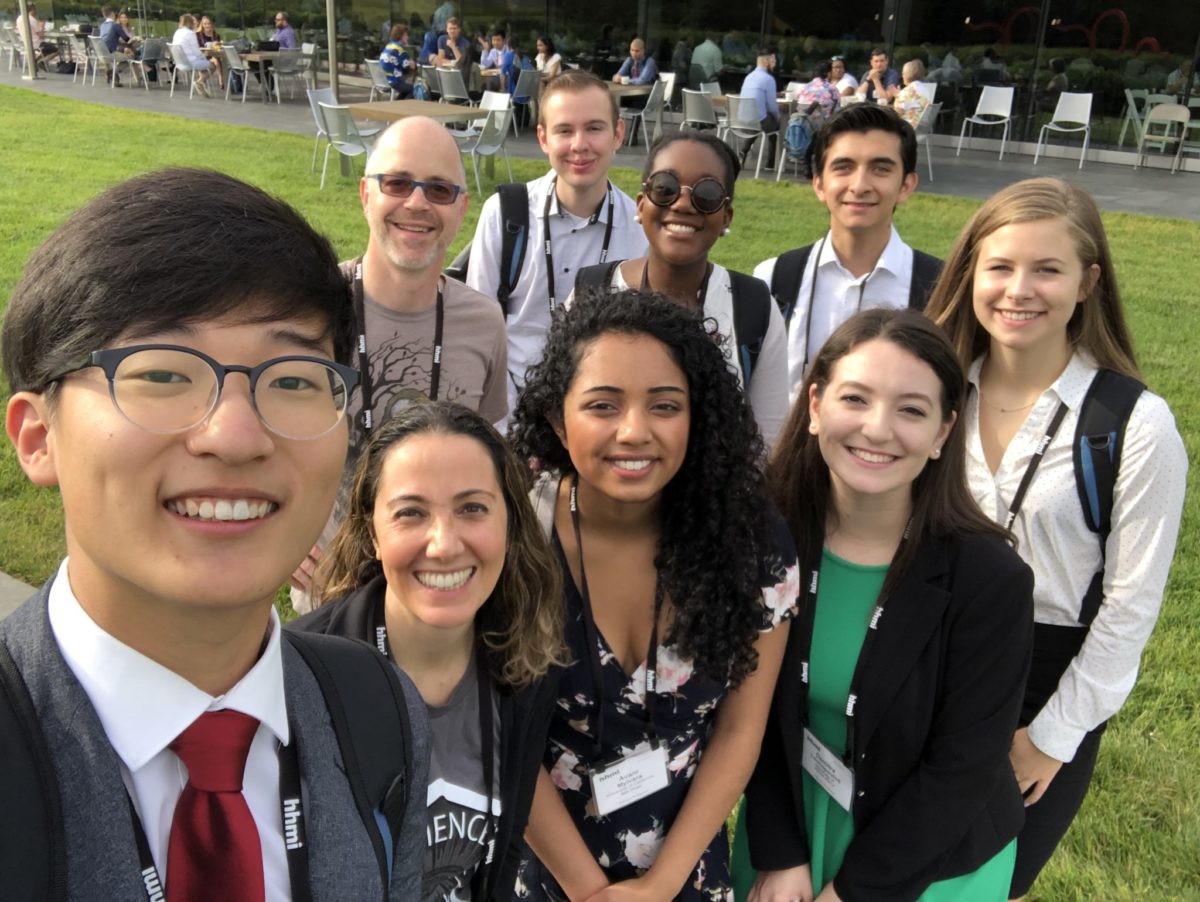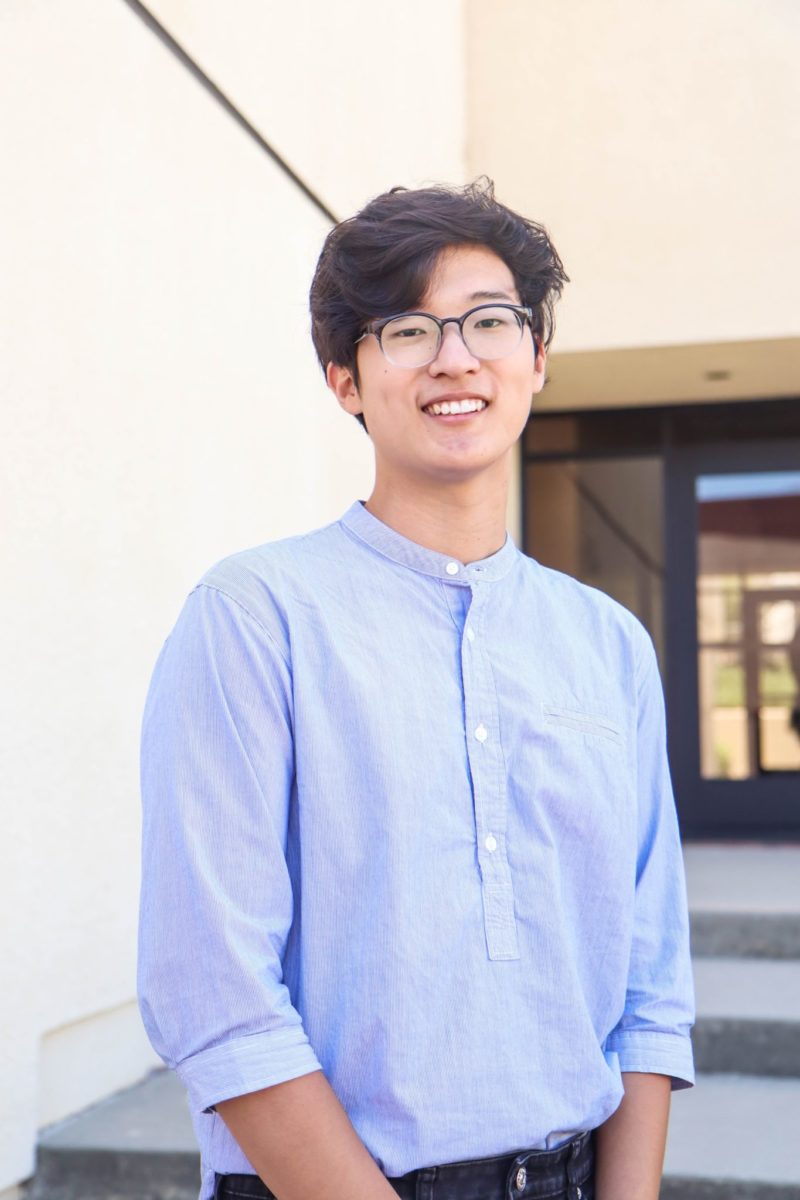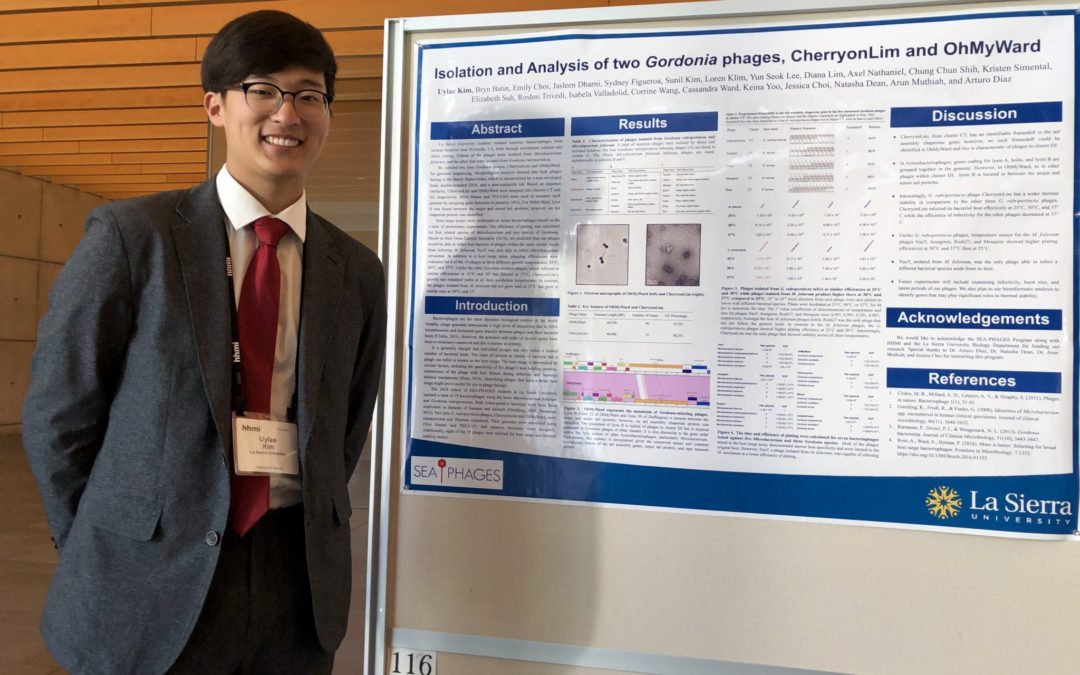Growing up, I remember my dad always telling me to become a “big” person. As a young Korean boy, I thought that he meant to grow tall physically because my dad is only 5’4” and every Asian parent’s dream is for their son to be tall. Now that I am 6’1” and a second year student at La Sierra, I’m pretty sure that height was not what father was talking about. What he really wanted for his only son was for me to make a difference in the world, in my own way. He did not, however, hand me an elaborate protocol on how to achieve this goal; it was my job to search for purpose. It was while carving out my life path in medicine that I first stumbled upon scientific research and knew that I had hit gold in my search for purpose. Research gave me a platform to find solutions for medical diseases or mysteries such as cancer, and that is why I pursued it at La Sierra.

Although the lab of Dr. Arturo Diaz (Associate Professor, Dept. of Biology) was not my first research internship, it certainly had everything I was looking for: productivity, fellowship, curiosity, and passion. The only aspect of the lab that made me wary about joining was, ironically, its focus: viruses. Virology was honestly a field I did not have much knowledge or interest in at the time. However, after taking the SEA-PHAGES course, I learned more about how these invisible infectious agents were causing countless pathological diseases worldwide, but were also being manipulated and engineered in virus-mediated therapies to save lives. This duality interested me and ultimately developed a yearning passion to get involved in virus research with Dr. Diaz. I saw so much potential in the evolving field and knew I wanted to be a part of the difference it would one day make in saving so many lives.

Time flies when you are doing something you love, as it has already been a year since I joined this lab when I was a freshman. Since then, I have learned crucial values that have made me not only a better scientist, but a bigger person: patience, critical thinking, teamwork, and organization. Even if I do not become a full-time researcher when I grow up, I can be reassured that I have made at least a small impact upon the scientific community. I want to encourage all undergraduate students to get involved with research; it’s not just for biology majors or for pre-professional students. Find whatever problem interests you and start solving it through an undergraduate research program.
–– UY Kim (Class of 2022, Biological Science major)

